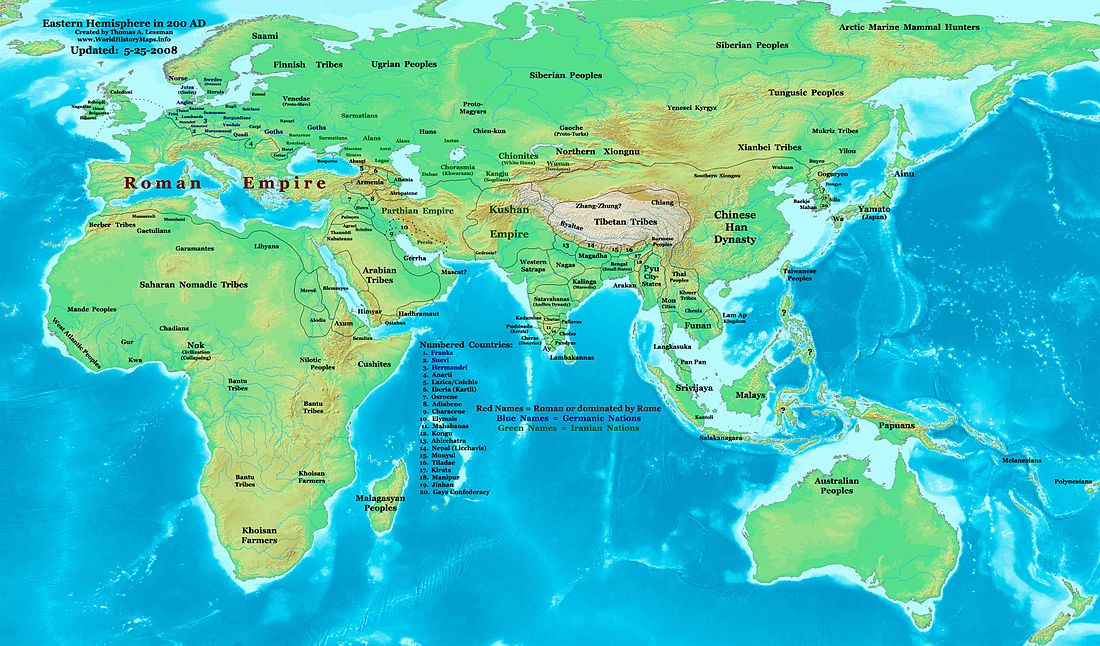Top Qs
Timeline
Chat
Perspective
200
Calendar year From Wikipedia, the free encyclopedia
Remove ads
Year 200 (CC) was a leap year starting on Tuesday of the Julian calendar. At the time, it was known as the Year of the Consulship of Severus and Victorinus (or, less frequently, year 953 Ab urbe condita). The denomination 200 for this year has been used since the early medieval period, when the Anno Domini calendar era became the prevalent method in Europe for naming years.
This article needs additional citations for verification. (July 2023) |

Remove ads
Events
By place
World
- Human population reaches about 257 million.
Roman Empire
- Emperor Septimius Severus visits the provinces of Syria, Palestine, and Arabia.
- The province of Numidia is taken from the African proconsul, and made an Imperial province.
India
- Rudrasena I, Saka ruler of the Western Satrap dynasty, becomes king of Malwa in Classical India.
China
Japan
America
- The Classic Age of Maya civilization begins (around this year).
- The Paracas culture in the Andes ends (around this year).
By topic
Art
- The Severan Tondo, depicting Septimius Severus, Julia Domna and their children Geta and Caracalla, from Fayum, Egypt, is made. It is now kept at Staatliche Museen zu Berlin, Preußischer Kulturbesitz, Antikensammlung.
Religion
- Jewish Eretz Yisraeli scholar Judah ha-Nasi compiles tracts of the Mishnah, creating Talmudic law.
- Clement of Alexandria denounces the use of musical instruments instead of human voices in Christian music.
- Brahmanism evolves into Hinduism (approximate date).
Remove ads
Births
- Cyprian, Roman bishop and writer (d. 258)
- Diophantus, Greek mathematician and writer [2]
- Marcus Claudius Tacitus, Roman emperor (d. 276)
- Novatian, Roman antipope and theologian (d. 258)
- Valerian I, Roman emperor (d. 260/264)
- Zhang Changpu, Chinese concubine (d. 257)
Deaths
- Gan Ji, Chinese Taoist priest and writer
- Ju Shou, Chinese adviser and politician
- Quintus Aemilius Saturninus, Roman prefect
- Sun Ce, Chinese general and warlord (b. 175)
- Tian Feng, Chinese official, adviser and politician
- Xu Gong, Chinese official, administrator and warlord
- Zheng Xuan, Chinese philosopher and writer (b. 127)[3]
- Emperor Chūai of Japan, according to legend.
- Chunyu Qiong
References
Wikiwand - on
Seamless Wikipedia browsing. On steroids.
Remove ads
